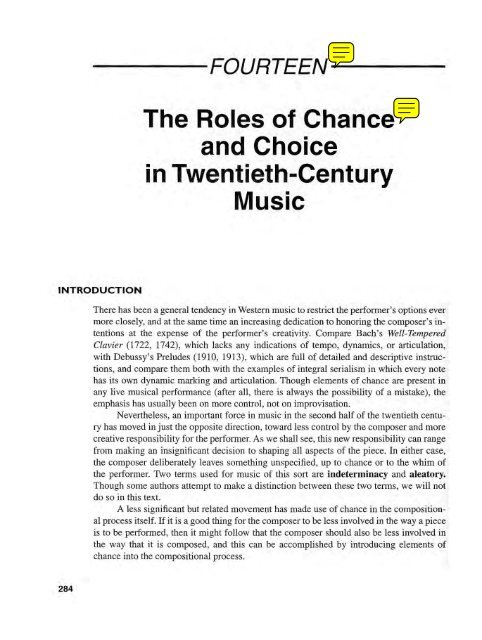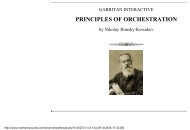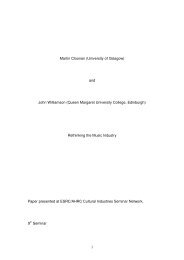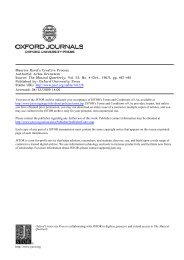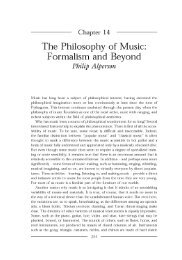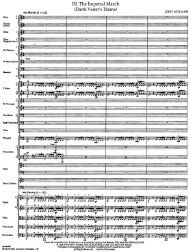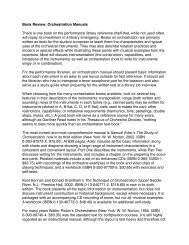TWENTIETH- - Synapse Music
TWENTIETH- - Synapse Music
TWENTIETH- - Synapse Music
Create successful ePaper yourself
Turn your PDF publications into a flip-book with our unique Google optimized e-Paper software.
--------FOURTEEN--------<br />
INTRODUCTION<br />
284<br />
The Roles of Chance<br />
and Choice<br />
in Twentieth-Centu ry<br />
<strong>Music</strong><br />
There has been a general tendency in Western music to restrict the performer's options ever<br />
more closely, and at the same time an increasing dedication to honoring the composer's intentions<br />
at the expense of the performer's creativity. Compare Bach's Well-Tempered<br />
Clavier (1722, 1742), which lacks any indications of tempo, dynamics, or articulation,<br />
with Debussy's Preludes (1910, 191 3), which are fu ll of detailed and descriptive instructions,<br />
and compare them both with the examples of integral serialism in which every note<br />
has its own dynamic marking and articulation. Though elements of chance are present in<br />
any live musical performance (after all, there is always the po>sibility of a mistake), the<br />
emphasis has usually been on more control , not on improvisation.<br />
Neveltheless, an important force in music in the second half of the twentieth century<br />
has moved in just the opposite direction , toward less control by the composer and more<br />
creative responsibility for the performer. As we shall see, this new responsibility can range<br />
from making an insignificant decision to shaping all aspects of the piece. In either case,<br />
the composer deliberately leaves something unspecified, up to chance or to the whim of<br />
the performer. Two terms used for music of this sort are indeterminacy and aleatory.<br />
Though some authors attempt to make a distinction between these two telms, we will not<br />
do so in this text.<br />
A less significant but related movement has made use of chance in the compositional<br />
process itself. If it is a good thing for the composer to be less involved in the way a piece<br />
is to be performed, then it might follow that the composer should also be less involved in<br />
the way that it is composed, and this can be accomplished by introducing elements of<br />
chance into the compositional process.


